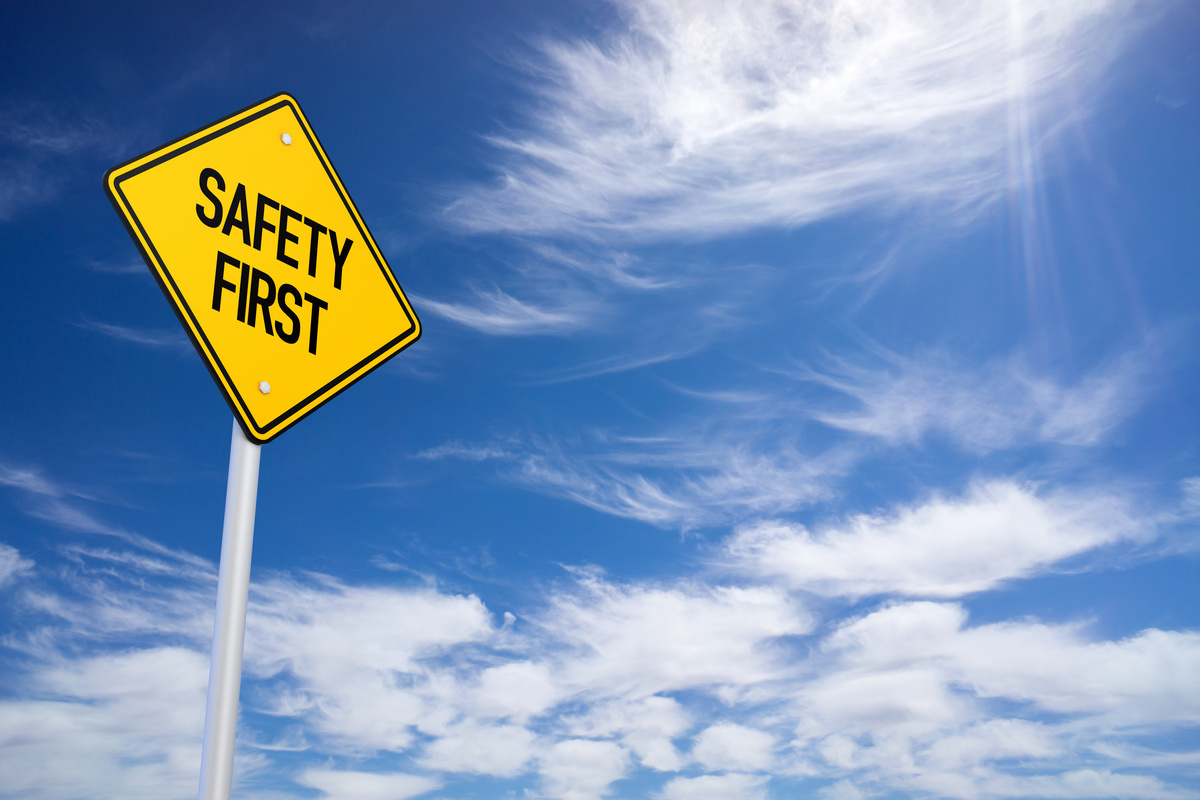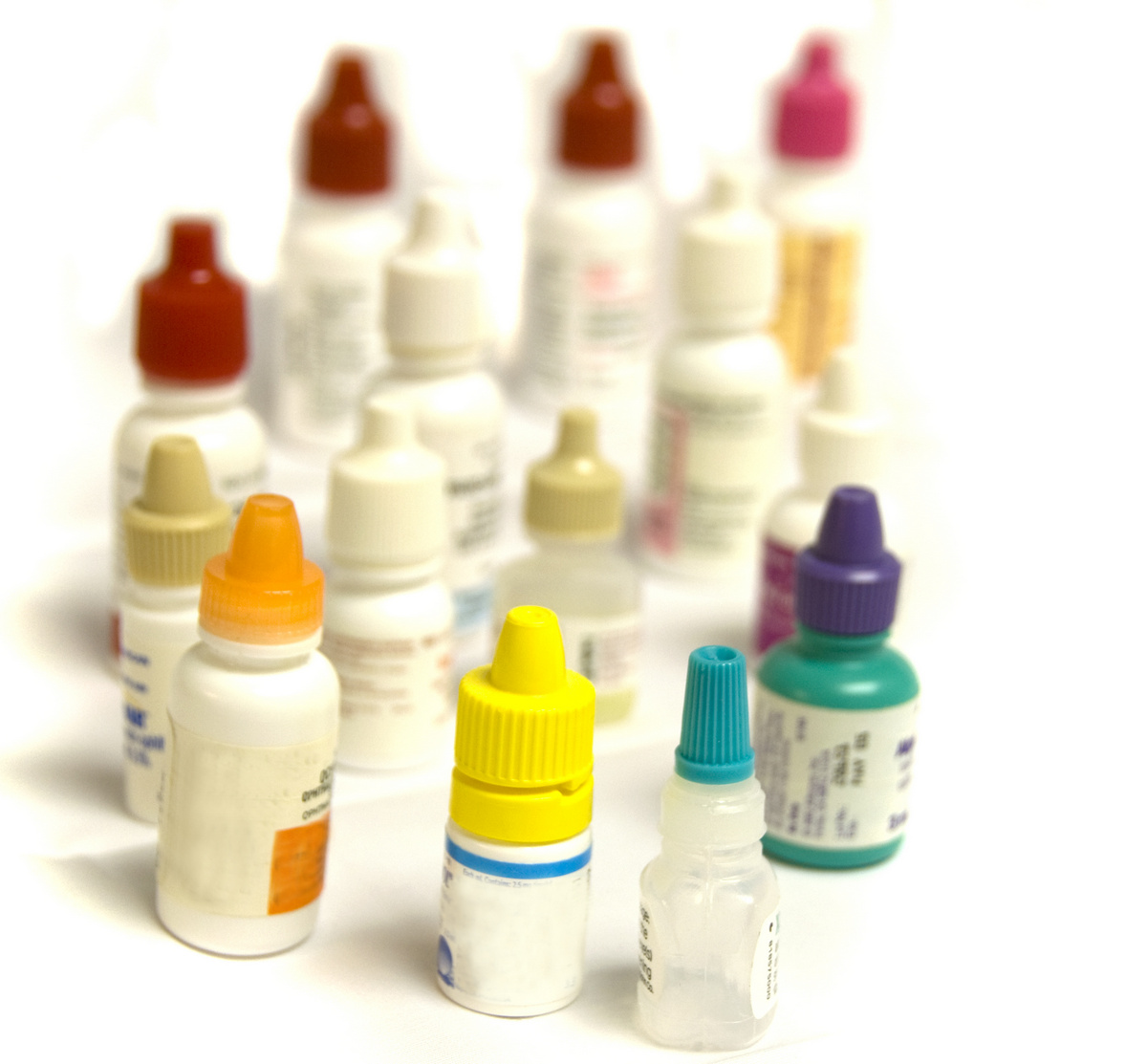Is It Safe to Use Eye Drops for Contacts? Here's the Truth!

We've all been there. You wake up, a little groggy, only to find…oh no! An empty bottle of contact lens solution. You've got a big presentation at work today, a hot coffee date, and an important meeting. You can't wear your glasses! But you definitely haven't got the time to run out and buy a new bottle of lens solution.
You have no choice but to scrape your contact lenses out of their case. You grab that bottle of eye drops and rinse your lenses with a few squirts. Using eye drops for contacts is essentially the same thing as contact lens solution, right?
As it turns out, it's not that simple! The safety and effectiveness of substituting eye drops for solution is actually a widely-debated topic. The fact is, our eyes are delicate and it's crucial that we treat them properly! Are you good to go for a day or two using eye drops instead of real lens solution? Or do you really need to figure out something else?
Here's the truth about using eye drops for contacts when you're out of regular contact solution.
Why We Need Contact Lens Solution
Contact solution is specially designed for cleaning and disinfecting lenses. It contains:
- Preservatives to prevent bacteria growth
- Buffers to maintain a safe pH balance
- Binding and wetting agents to clean debris and keep lenses moist
Without these ingredients, lenses can collect oil, makeup, proteins, and microbes that lead to irritation or infection. Eye drops are not made for this purpose.
Types of Eye Drops

If you've been a lens or glasses wearer for a while now, you likely know all about eye care products. You may have realized that there are a few different varieties of eye drops. Here are the main types:
Medicated Eye Drops
These are the ones you get directly from your optometrist. You had that weird bump on your eyelid or the tiny lesion on your eyeball. And when you went to get it checked out, your doctor sent you home with a tiny bottle of medicated drops.
If your issue cleared up with those drops, awesome! But unless you want some new problems, it's not a good idea to use medicated drops for contacts.
Medicated eye drops are created and prescribed to take care of certain issues. In fact, the simple act of wearing contacts while using medicated eye drops is not advised. If you're out of contact solution, medicated eye drops are not your friend.
Eye Drops for Dry Eyes
Eye drops for dry eye syndrome are a variety many lens wearers invest in sooner or later. These drops are meant to promote moisture. In the long term, they also help heal and lubricate the surfaces of the eyes.
However, when these eye drops are used in place of contact solution, they can make your contact lenses gummy or slimy. This can become a huge issue.
Contacts gather oil, makeup, microorganisms, and more buildup as you wear them. Contact solution helps to rid your lenses of this stuff. Dry eye drops, when used in place of solution, can actually add to the buildup. Plus, they're not designed for disinfecting.
Anti-Redness Eye Drops
Anti-redness eye drops help shrink the tiny blood vessels that cover the whites of our eyes. They do this by using ingredients called "vasoconstrictors" that shrink those microscopic blood vessels.
The vasoconstrictors in anti-redness eye drops can actually react with your contact lenses. This can cause small lesions, irritation, and dependency. They're not designed to do any disinfecting or lubricating. So using anti-redness eye drops in place of contact solution sets you up for new risks!
So Can I Substitute Drops for Solution?

The short answer is no. Eye drops are not designed to replace contact lens solution. While they may hydrate or soothe your eyes, they lack the essential cleaning and disinfecting properties needed for safe contact lens wear.
Here is why they cannot replace solution:
- No debris removal: Eye drops do not break down or remove proteins, oils, and particles that accumulate on lenses throughout the day.
- No disinfection: Proper solution kills harmful bacteria and microorganisms that can cause infections. Eye drops provide moisture but no germ protection.
- Chemical interactions: Many eye drops contain ingredients that can stick to lens material, leaving a residue that reduces clarity and comfort. Some may even warp the lens or irritate the cornea.
- False sense of security: Using drops can make lenses feel temporarily more comfortable, but the bacteria and buildup remain, increasing your risk of infection.
Even if your eyes feel fine, using eye drops in place of solution is risky. Over time, it can lead to irritation, keratitis, or more serious complications.
Safe Alternatives if You Run Out of Solution
If you are caught without solution, there are a few safer short-term options, but none are perfect replacements:
-
Saline solution:
- Can be used for rinsing lenses briefly, such as removing dust or smudges.
- Does not disinfect lenses or kill bacteria.
- Only safe if you plan to wear the lenses immediately and discard them after a short time.
-
Hydrogen peroxide systems:
- Require a special lens case with a platinum disc that neutralizes the peroxide into water and oxygen.
- Very effective for disinfecting, but unsafe to use without the neutralizing step. Direct peroxide can burn your eyes.
- Best for overnight cleaning if used properly.
-
Backup glasses:
- Always the safest choice when you cannot clean your lenses.
- Gives your eyes a rest and ensures you are not taking unnecessary risks.
What to avoid completely: tap water, distilled water, saliva, or homemade solutions. These may carry dangerous microorganisms like Acanthamoeba, which can cause serious eye infections and even permanent vision loss.
How To Avoid This Situation
Running out of solution is preventable with a little planning. Here are some practical ways to make sure you are never stuck:
- Carry a travel kit: Keep a small lens case and travel-size bottle of solution in your bag, car, or office. These kits are inexpensive and prevent emergencies.
- Always keep backup glasses: Even if you rarely wear them, glasses are your safest option when you cannot disinfect your lenses.
- Monitor your supply: Get in the habit of ordering new solution before the bottle runs low, not after. Subscriptions or auto-ship services can help.
- Consider daily disposables: If you are often on the go, daily disposable lenses eliminate the need for cleaning and storing altogether.
By preparing ahead, you remove the temptation to cut corners and protect your eyes from unnecessary risks.
Want More Information on Using Eye Drops for Contacts?

It's rare that someone can get through their whole contacts-wearing life without a run-in or two with that dreaded empty bottle of contact solution. Using eye drops for contacts when you're fresh out of solution isn't a great idea. There are other options!
Scavenge through the cupboards for saline solution or hydrogen peroxide (only if you have a platinum catalyst). You'll be able to at least clean your lenses of some debris and microorganisms. But you need to avoid distilled water or concocting your own liquid.
Eye drops are best kept for easing eye irritation. In this case, it’s always good to get the drops best suited for your particular condition. Your optometrist can give you more advice on the type of eye drops to buy. Better yet, get some daily disposables and you'll remove the issue altogether!
Knowledge keeps you ahead of the curve. Staying informed on the latest eye care tips can also help prevent future issues. For other important tips on how to care for your eyes, check out more of our blog!
FAQs: Eye Drops and Contact Lenses
Can I Use Eye Drops as Contact Solution?
No. Eye drops are not designed to disinfect lenses or remove buildup. They can leave residue and increase the risk of infection.
What Happens if I Rinse Contacts With Eye Drops?
The lenses may feel slimy or uncomfortable, and they will not be disinfected. Remove them as soon as possible and clean with proper solution.
Are There Any Eye Drops Safe for Contacts?
Only rewetting drops specifically labeled “for contact lenses” are safe to use while wearing them. These are not the same as storage or cleaning solutions.
What Should I Do if I Do Not Have Solution?
Use saline or a hydrogen peroxide system (with neutralizing case) temporarily, or wear glasses until you can get proper solution.
Can I Use Water or Saliva Instead?
No. Water and saliva contain bacteria and microorganisms that can cause severe eye infections, including Acanthamoeba keratitis.
